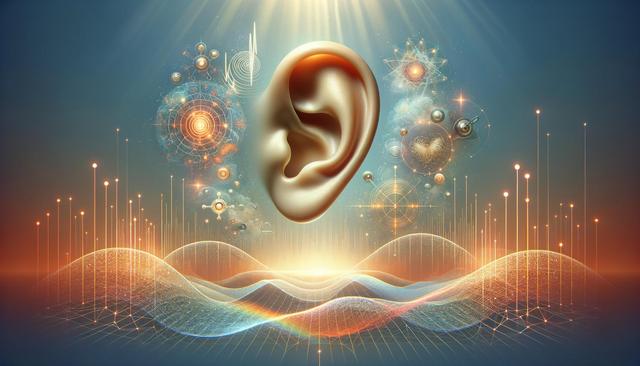Understanding Tinnitus and Its Causes
Tinnitus, often described as ringing in ears or ear buzzing, affects millions of people worldwide. This condition can range from occasional sounds to persistent noise that interferes with daily life. Tinnitus is not a disease itself but a symptom of underlying issues such as age-related hearing loss, ear injury, or circulatory system disorders. Identifying the root cause is a crucial step toward effective tinnitus relief. While medical treatments exist, many individuals seek a natural tinnitus cure that doesn’t involve medication. Common triggers include exposure to loud noise, stress, earwax buildup, and certain medications. By managing these contributing factors, you may be able to stop ear noise or reduce its intensity over time.
Dietary and Lifestyle Adjustments
One of the most accessible ways to pursue tinnitus treatment naturally is through changes in diet and lifestyle. What you eat and how you live can influence how often and how severely you experience tinnitus. Some individuals find that reducing salt, caffeine, and alcohol can lessen the intensity of ear buzzing. Similarly, staying hydrated and avoiding processed foods may support overall ear health. Consider incorporating foods rich in magnesium, zinc, and vitamin B12, as these nutrients have been associated with auditory function. Lifestyle adjustments that may contribute to tinnitus relief include:
- Maintaining a consistent sleep schedule
- Engaging in regular exercise to improve circulation
- Practicing relaxation techniques such as yoga or mindfulness
- Reducing exposure to loud environments
By adopting healthier habits, you may find a gradual improvement in symptoms, allowing you to experience a more balanced and quieter daily routine.
Sound Therapy and Acoustic Techniques
Sound therapy is a non-invasive approach to help manage the perception of tinnitus. It works by using external noise to counteract or mask the internal sounds caused by tinnitus. This can be especially helpful for those who experience ringing in ears during quiet moments. Common sound therapy methods include:
- White noise machines that produce calming background sounds
- Listening to nature sounds, such as ocean waves or rainfall
- Using hearing aids with built-in sound masking features
- Streaming specially designed music for tinnitus relief
These techniques do not cure tinnitus but can train the brain to focus less on the internal noise, making it less noticeable over time. For many individuals, sound therapy is an essential part of their natural tinnitus cure toolkit, helping them regain focus and comfort, especially during sleep or relaxation.
Herbal and Supplement-Based Approaches
Some people explore herbal remedies and dietary supplements as part of their tinnitus treatment plan. While scientific evidence is still developing, certain herbs and nutrients have shown promise in offering tinnitus relief. Popular natural supplements include:
- Ginkgo biloba, believed to improve blood circulation in the inner ear
- Magnesium, which supports nerve function and may protect against noise-induced hearing loss
- Zinc, important for ear health and immune function
- Vitamin B12, especially helpful for individuals with a deficiency
It’s important to consult with a healthcare provider before starting any new supplement, particularly if you are taking other medications. Natural remedies can be a gentle addition to your overall strategy to stop ear noise, but they work best when combined with other lifestyle and therapeutic approaches.
Mind-Body Techniques for Long-Term Relief
Managing the emotional and psychological impact of tinnitus is just as important as addressing the physical symptoms. Stress and anxiety can intensify the perception of ear buzzing, making it more intrusive. Mind-body techniques focus on calming the nervous system and changing the way the brain responds to tinnitus. These include:
- Meditation and mindfulness to reduce stress and improve focus
- Cognitive-behavioral therapy (CBT) to reframe negative thought patterns
- Biofeedback to gain control over physiological responses
- Deep breathing exercises to promote relaxation
Incorporating these practices into your daily routine can help you develop a more positive relationship with your symptoms. Rather than trying to eliminate the sound completely, the goal is to reduce its emotional impact, making it easier to live with. For many, this holistic strategy provides meaningful and sustainable tinnitus relief.
Conclusion: Embracing a Natural Path to Peace and Quiet
While tinnitus can be a persistent and frustrating condition, there are numerous natural options available to help manage and reduce its impact. From dietary changes and sound therapy to herbal supplements and mindfulness practices, each approach plays a role in a comprehensive tinnitus treatment plan. It’s important to remember that what works for one person may not work for another, so patience and consistency are key. If you’re seeking ways to stop ear noise without relying on medication, exploring these natural strategies may offer the relief and calm you’ve been looking for. Always consult with a healthcare provider to ensure your approach aligns with your overall health needs and goals.




Leave a Reply